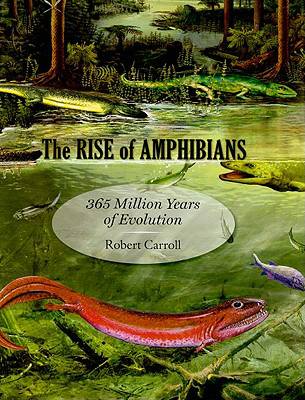
- Retrait gratuit dans votre magasin Club
- 7.000.000 titres dans notre catalogue
- Payer en toute sécurité
- Toujours un magasin près de chez vous
- Retrait gratuit dans votre magasin Club
- 7.000.000 titres dans notre catalogue
- Payer en toute sécurité
- Toujours un magasin près de chez vous
Description
2009 Outstanding Academic Title, ChoiceHonorable Mention, Biological and Life Sciences, 2009 PROSE Awards, Professional and Scholarly Publishing division of the Association of American Publishers
For nearly 100 million years, amphibians and their ancestors dominated the terrestrial and shallow water environments of the earth. Archaic animals with an amphibious way of life gave rise not only to modern frogs, salamanders, and caecilians but also to the ancestors of reptiles, birds, and mammals. In this landmark publication, one of the leading paleontologists of our time explores a pivotal moment in vertebrate evolution, the rise of amphibians.
Synthesizing findings from the rich and highly diverse fossil record of amphibians, Robert Carroll traces their origin back 365 million years, when particular species of fish traveled down an evolutionary pathway of fin modification that gave rise to legs. This period of dramatic radiation was followed by a cataclysmic extinction 250 million years ago. After a long gap, modern amphibian groups gradually emerged. Now the number of amphibian species and individuals throughout the tropical and temperate regions of the earth exceeds that of mammals.
The Rise of Amphibians is documented with more than two hundred illustrations of fossil amphibians and sixteen exquisite color plates depicting amphibians in their natural habitats throughout their long existence. The most comprehensive examination of amphibian evolution ever produced, The Rise of Amphibians is an essential resource for paleontologists, herpetologists, geologists, and evolutionary biologists.
Spécifications
Parties prenantes
- Auteur(s) :
- Editeur:
Contenu
- Nombre de pages :
- 392
- Langue:
- Anglais
Caractéristiques
- EAN:
- 9780801891403
- Date de parution :
- 01-07-09
- Format:
- Livre relié
- Format numérique:
- Genaaid
- Dimensions :
- 222 mm x 284 mm
- Poids :
- 1360 g







